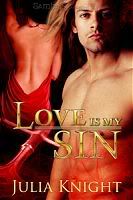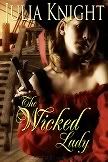
How to…Keep your editor happy.
February 25, 2011By Sara Townsend
Writing is a lifelong learning process. But, much like driving, the more confident you become in your skills, the easier it is to unconsciously fall into bad habits. And sometimes you are completely unaware of these bad habits until you have an editor gnashing his or her teeth over your manuscript.
Here I present a few things I learned along the way that I try to heed, to prevent my editor feeling the urge to bash me over the head with my own manuscript.
Show, Don’t Tell
Pretty simple, this. Writing “he slammed the book down on the table” says the same thing as “he was angry” but in a much more expressive way.
Avoiding The Word “Said”
I remember my English teacher telling me to always find another word to use than “said.” “Said” was boring. The truth is, though, one can never over-use the word “said”. If you have characters who gush, assert, snap, growl or worse, ejaculate, their words, it takes the reader out of the story pretty quickly. The same can be said for too many adverbs after the word “said”. ‘He said quickly’, ‘she said angrily,’ ‘he said brightly’, and so on. This relates back to the first point – taking more care over what’s actually being said will transmit very clearly the emotions behind the dialogue.
Dialogue Tags
Relating to the last point, something that really bugs my editor is a piece of dialogue that’s full of “he said/she said”. If you have two characters carrying on a conversation, it’s not always necessary to point out who’s speaking, and you can make it clear by clarifying an action. So for instance:
He put the mug down on the table. “Here’s your tea.”
She picked it up. “Thanks.”’
You don’t need dialogue tags at all here, because it’s perfectly clear who’s saying what.
Of course, you can take this too far the other way. Kathy Reichs is one of my favourite authors, but she has a habit of writing four pages of dialogue with no speech tags at all, to the point I have to go back to the beginning of the chapter and start counting to work out who’s saying what.
Head Hopping
An easy trap to fall into when you’re writing in third person is to go blithely hopping from one character’s POV to another. You can’t have, for instance: Mary walked into the room, aware of John’s eyes on her. He didn’t like the dress she was wearing; it made her look dowdy.
The first sentence is Mary’s POV, the second is John’s. But you could say: Mary walked into the room, aware of John’s eyes on her. She knew he didn’t like her wearing that dress. Which keeps us in Mary’s POV.
I see this far more often than I should in published novels, but I was guilty of it myself in my first published novel. Fortunately for me, my editor picked it up. I try very hard not to do it again.
All of these sins I’d been made aware of before I got to editor stage, yet still I was guilty of them all when my editor came to work on my manuscript. I try very hard now to keep these lessons in mind when I re-write. Can I lose some of these dialogue tags? Am I straying from this character’s POV? Do I really need an adverb here? Am I ‘telling’? How can I ‘show’ instead?
It’s best to be aware of these habits early on, and get them out of your system before you even have an editor. The more good habits you hone as a writer, the happier your editor will be. And a happy editor is a Very Good Thing.
Sara-Jayne Townsend is a UK-based writer of crime and horror. She was born in Cheshire in 1969, but spent most of the 1980s living in Canada after her family emigrated there. She now lives in Surrey with two cats and her husband Chris. She co-founded the T Party Writers’ Group in 1994, and remains Chair Person.
She decided she was going to be a published novelist when she was 10 years old and finished her first novel a year later. It took 30 years of submitting, however, to fulfil that dream. Her first novel, SUFFER THE CHILDREN, was published as an e-book by Lyrical Press, Inc. in 2010 (available here).
Her next book, DEATH SCENE, is the first in a series about amateur sleuth and Canadian actress Shara Summers, and will be released as an e-book by Lyrical Press, Inc. later this year.
You can learn more about Sara and her writing at her website at or her blog

 Viking's Sacrifice
Viking's Sacrifice Ten Ruby Trick
Ten Ruby Trick


[…] This post was mentioned on Twitter by sarajtownsend, Julia Knight. Julia Knight said: New how to, by Sara Townsend – keeping your editor happy https://juliazknight.wordpress.com/2011/02/25/how-to-keep-your-editor-happy/ […]
[…] Today, I am the guest blogger with a post regarding what I’ve learned about “How to Keep Your Editor Happy“. […]
Excellent advice! My favorite is “show, don’t tell.” It drives me nuts when novels tell too much. I find myself talking to them and saying “just show me! I’ll figure it out…not stupid, you know.” 🙂
My editor would approve. Nice post!
Some good, solid advice there that all writers should listen to.